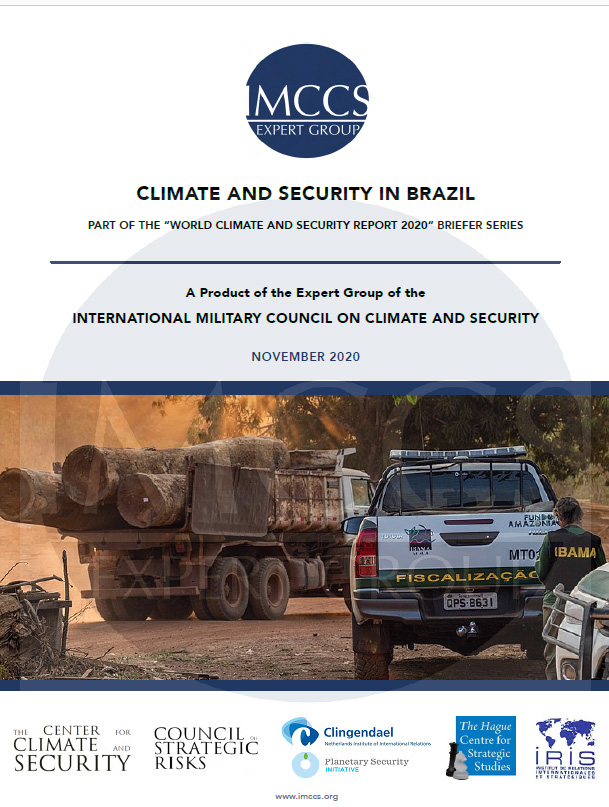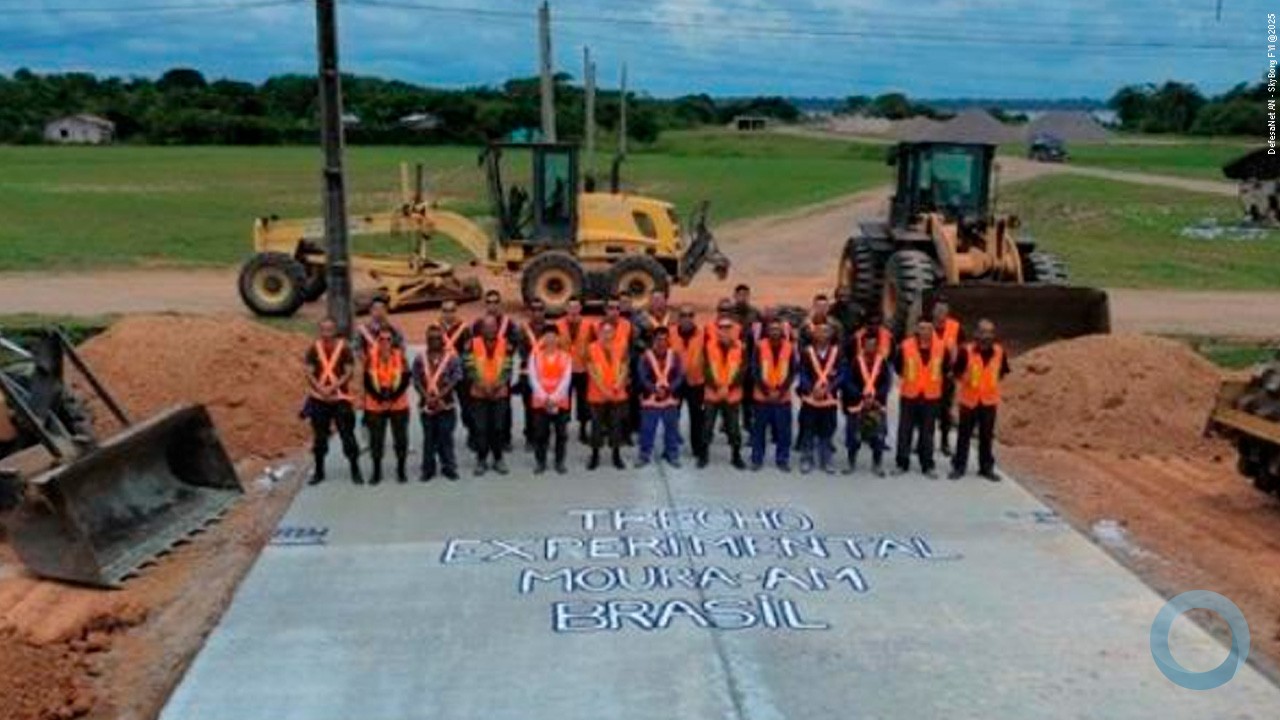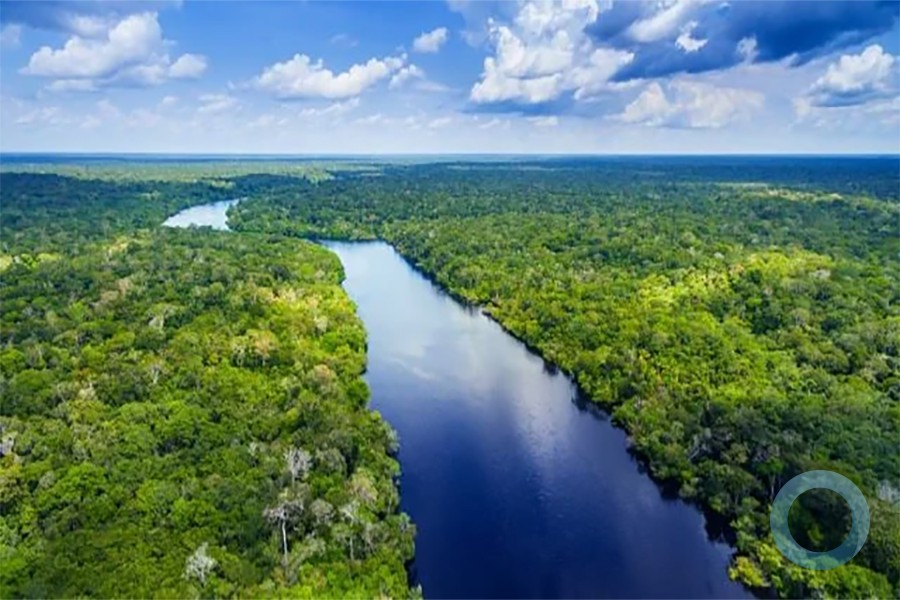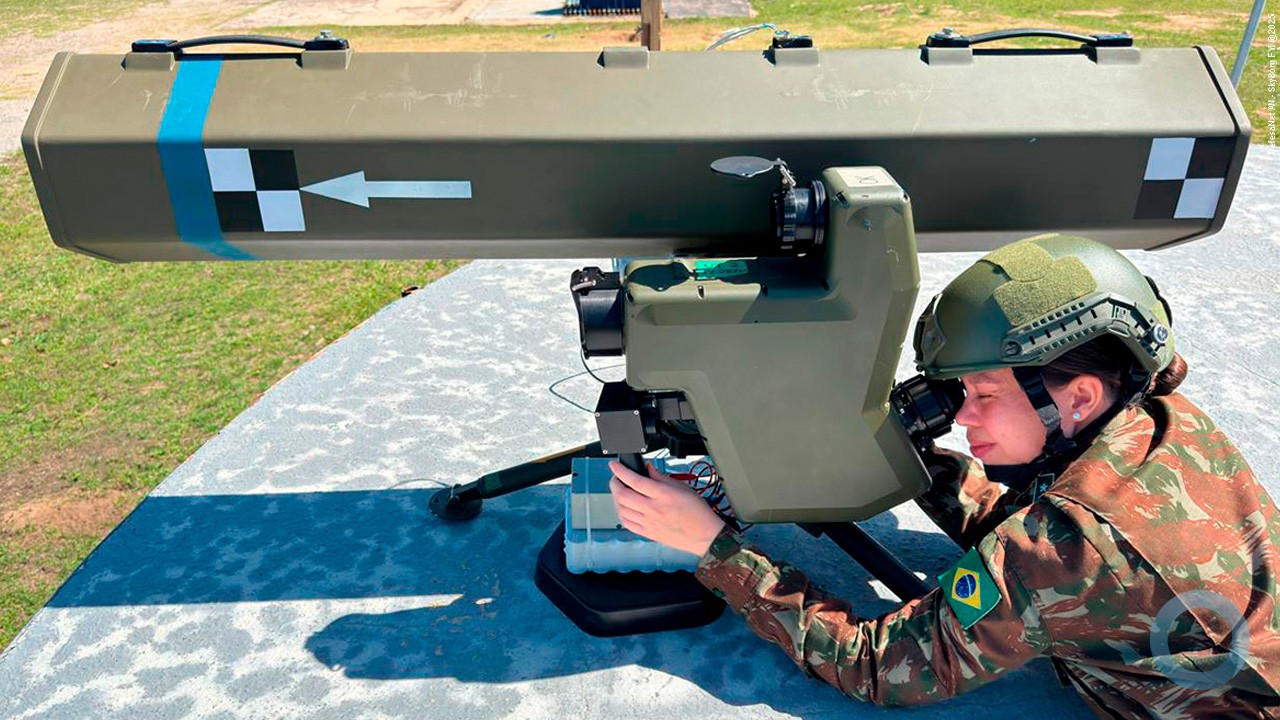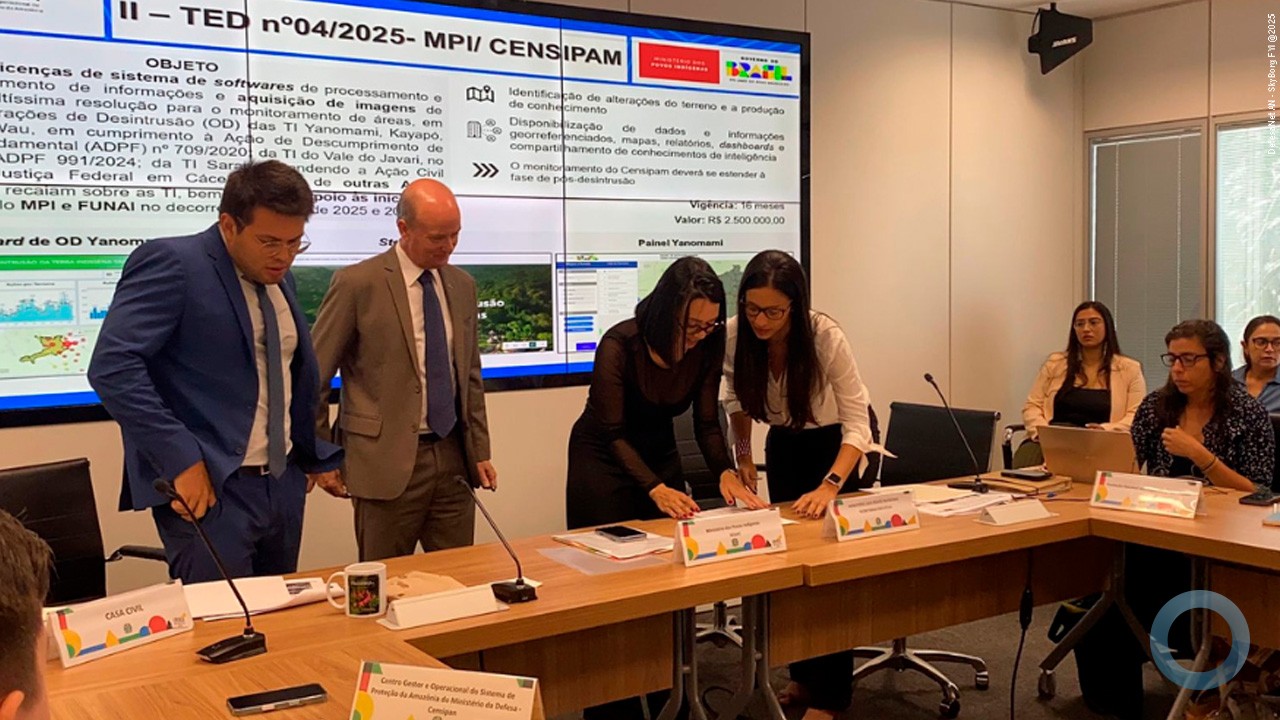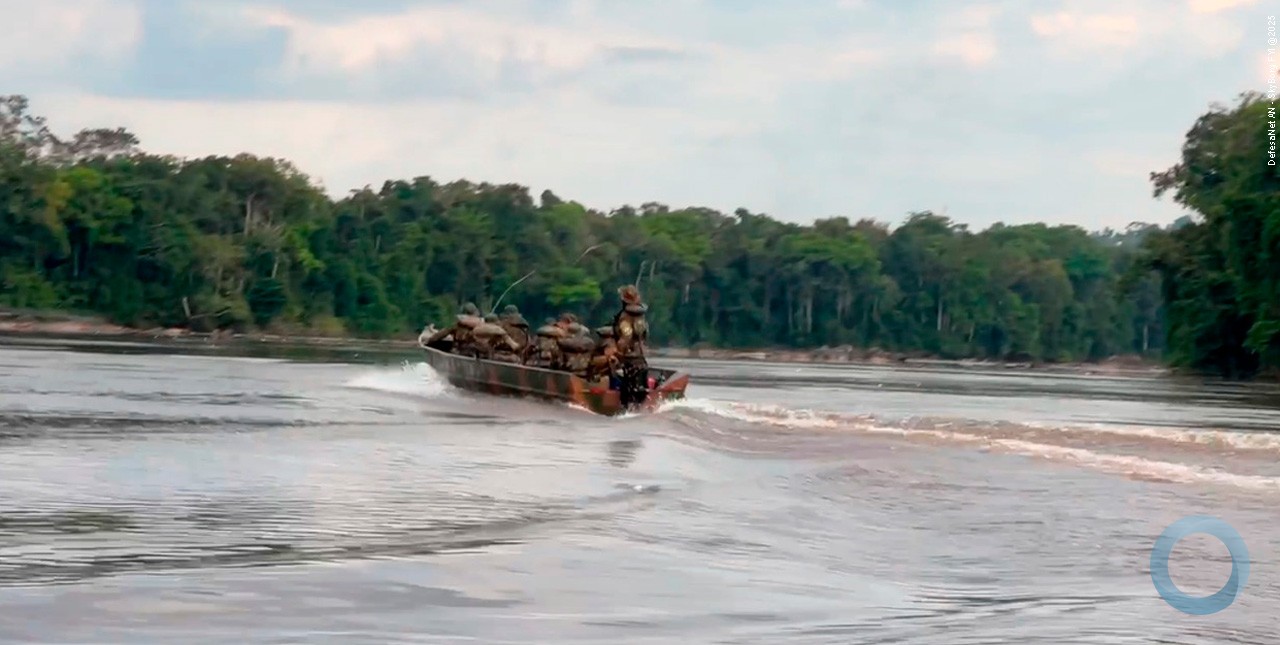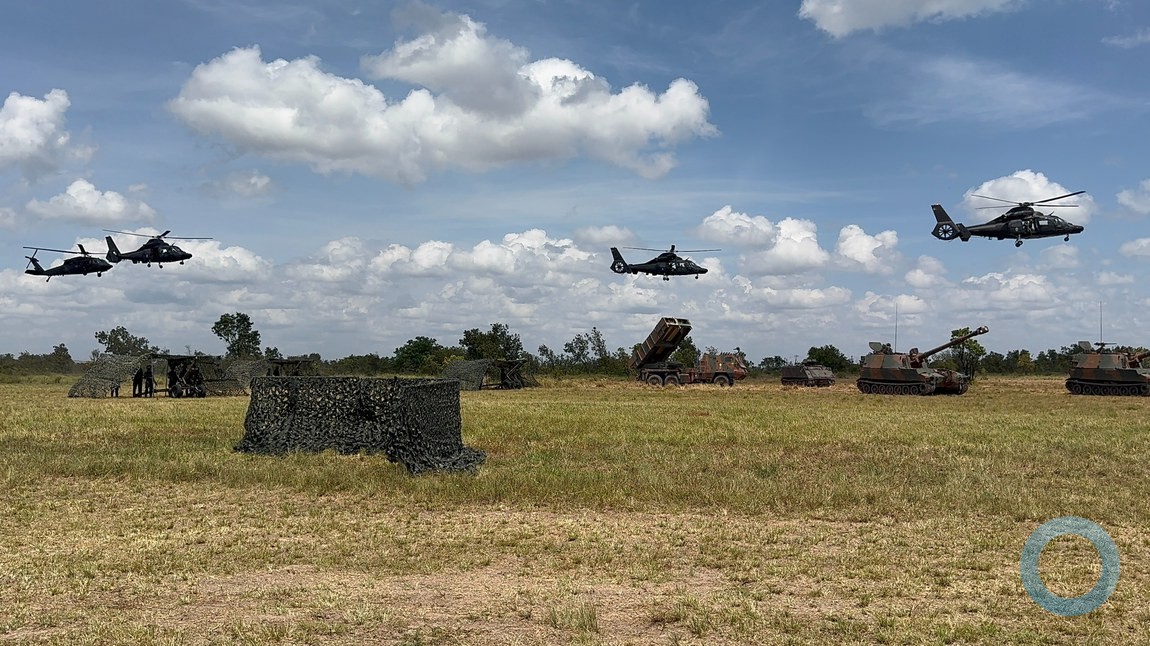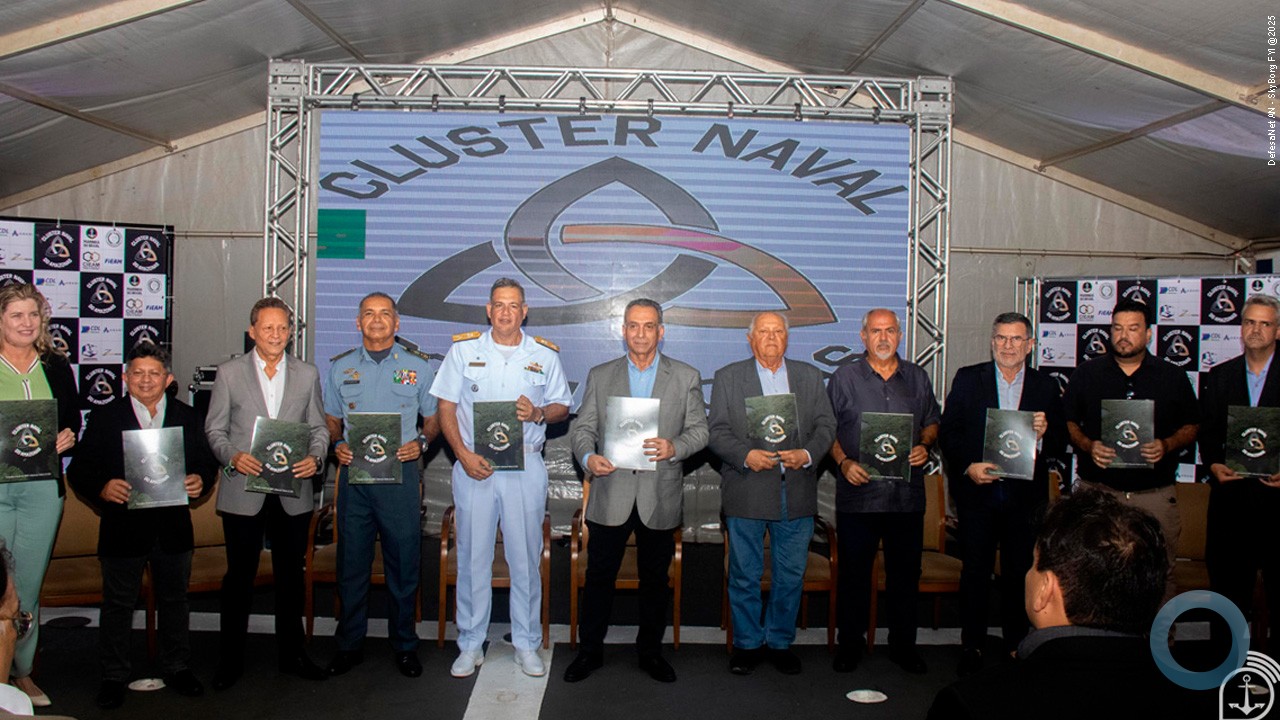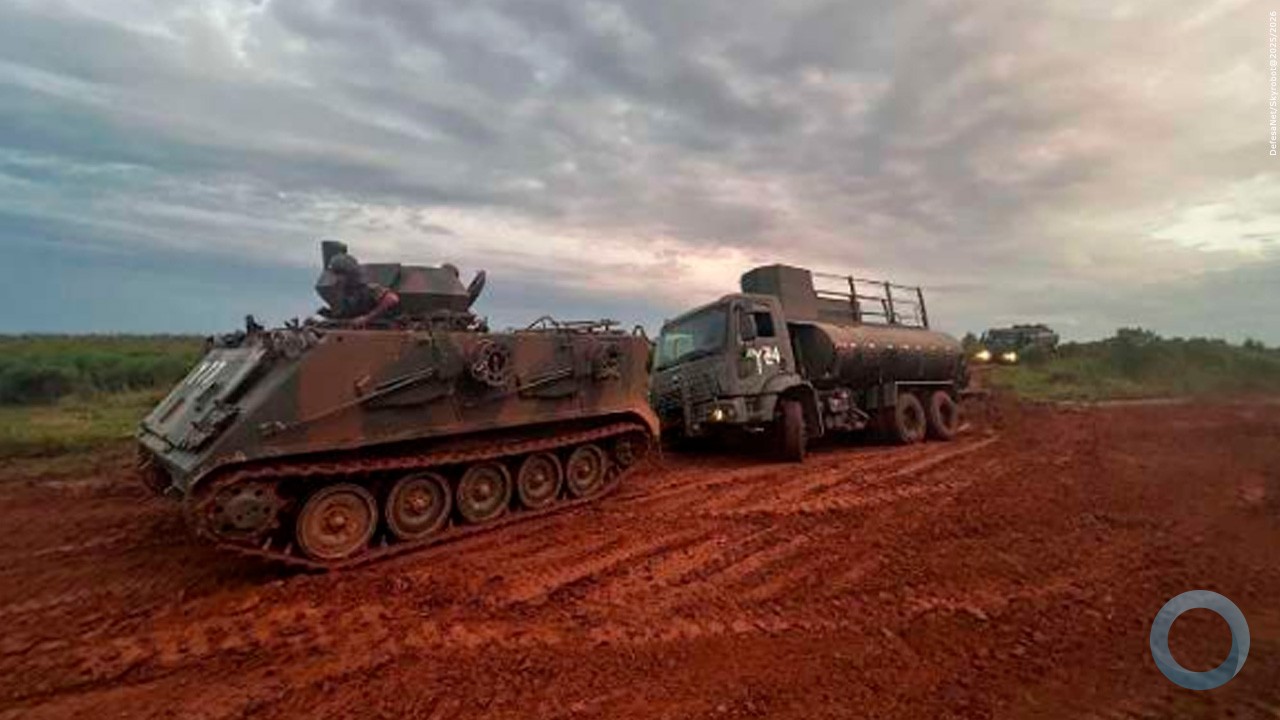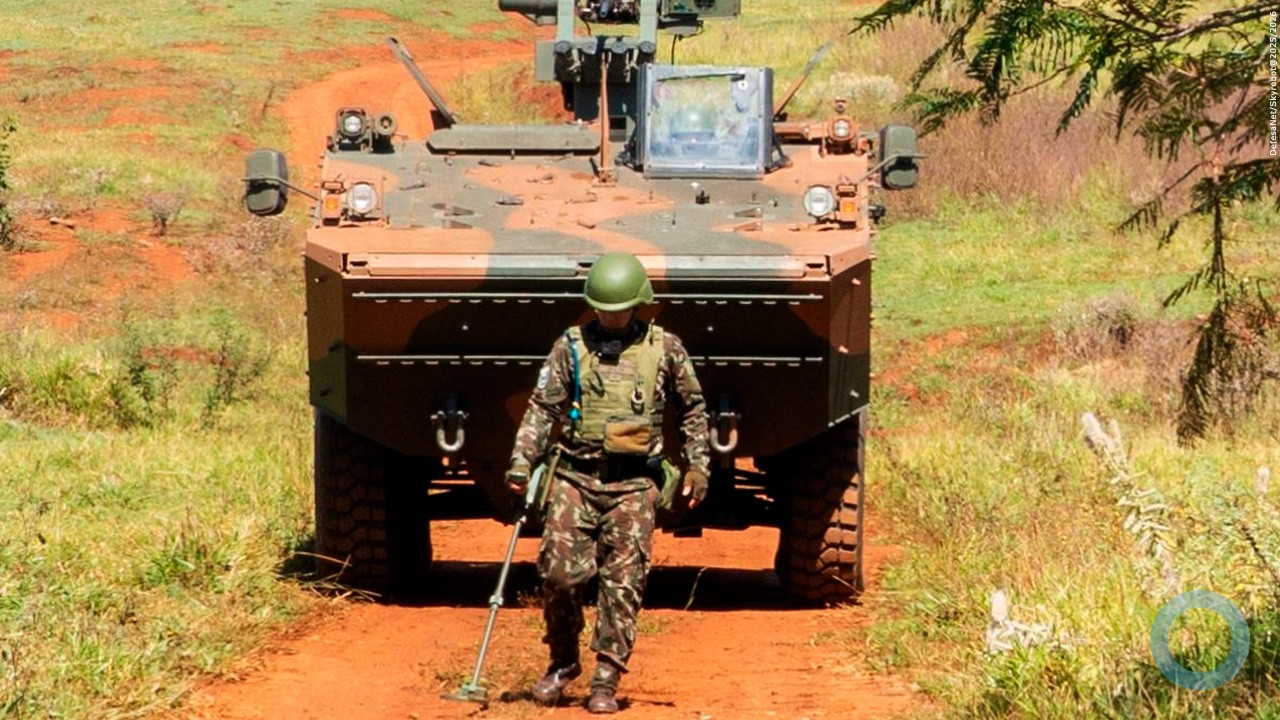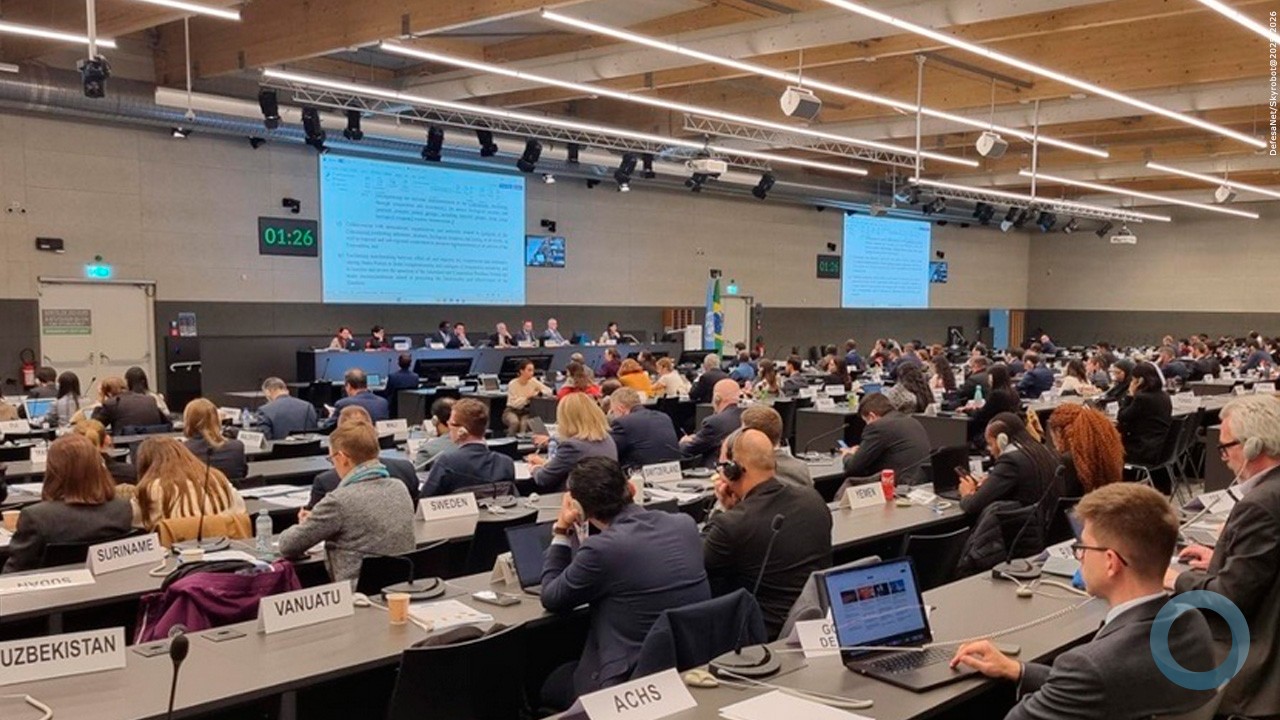|
Nota DefesaNet A íntegra do documento do INTERNATIONAL MILITARY COUNCIL ON CLIMATE AND SECURITY (IMCCS) pode ser acessado abaixo. O Editor
|
Climate change is much more than an environmental issue; it represents a serious challenge to peace and stability across the world. This report explores how this threat may affect the largest and most populous state in South America: Brazil.
Despite historically recognizing climate security threats, Brazil is not adequately prepared for the impacts of climate change-related stressors on its security, economy, natural resource base, or critical national infrastructure, including military facilities. This report recommends that the Brazilian security community conduct a thorough risk assessment, including risks to Brazil’s strategic interests as an emerging middle power, and develop a robust, cross-governmental plan to address the range of threats climate change poses to national security. It also recommends that the Brazilian government engage in a significant effort to reduce deforestation, and meet international climate goals, in order to avoid the potentially catastrophic security ramifications of current greenhouse gas emission trajectories.
The US security community and others have recognized that climate change is reshaping the global strategic environment, and have been addressing a range of climate-related impacts on military readiness, operations and strategy.
For example, in 2014, the U.S. Department of Defense released its Climate Change Adaptation Roadmap — a document that repeatedly referred to climate change as a “threat multiplier” because of its potential to exacerbate many of the challenges the U.S. military confronts at home and abroad .
In 2010, the U.S. Joint Forces Command published a capstone assessment warning that climate change had become “one of the top 10 trends facing military leaders” and emphasized the “urgency” of the matter and the need for its leaders to understand the “uncertainties that lie ahead.”
Under the outgoing Trump Administration, despite a lack of concern about climate change from the White House, senior defense officials have continued to make significant statements and actions acknowledging the security risks of climate change.
Brazil’s most recent National Security Policy (2020) also acknowledges that impacts caused by changes in the climate “may have serious environmental consequences, social, economic and political, requiring prompt response from the State.”
Its Green Book (Livro Verde), published by the Ministry of Defense, details the many ways Brazil’s Armed Forces are caring for the environment in which they train and operate.
The Brazilian military is in some respects attuned to aspects of how climate change will affect its mission; this report examines these issues in depth and highlights the importance of considering how climate change can affect Brazil’s strategic interests, and the global and regional security environments.
This analysis finds a number of ways that Brazil’s security could be impacted in the context of climate change, from direct climate impacts such as floods and droughts, to other changes such as preserving the Amazon forest as a carbon sink. These factors could be important to Brazil’s security, but may not yet be well-recognized in the current security discourse.
They include:
• Riverine and coastal military infrastructure’s exposure to flooding from sea level rise and extreme rainfall, and the potential impact on military readiness and missions.
• The security impacts of lax enforcement of the rule of law, particularly on counter-deforestation, which opens space for transnational criminal activity.
• The impact of changing rainfall patterns on Brazil’s energy security, due to the country’s dependence on hydroelectric dams – which are crucial for the transition to renewable energy but vulnerable to changing river flows.
• The role of the Amazon forest and rainfall cycles for Brazil’s water security, including water supplies in major urban centers.
• The potential drawbacks of military organizations leading on counter-deforestation and wildlands firefighting, in terms of usurping and being less effective than civilian agencies, and democratic legitimacy.
Brazil is central to the region’s climate change discourse, as an indispensable player in regional forestry, water and energy supply discussions and agreements. The country’s collaborative efforts with its neighbors on countering environmental crimes also highlight the central role of Brazil’s security forces
in regional resource governance and countering organized crime.
Brazil has the potential to lead in the region, not only in Amazonian affairs, but in charting a course toward regional resilience to climate change impacts, and preventing their potential security consequences. However, Brazil’s reversal of its once-responsible counter-deforestation and enforcement policies in recent years is of particular concern, to both Brazilians and the international community, given the critical importance of the Amazon forest to the global climate system.
Without urgent climate-security contingency planning, sustained and comprehensive greenhouse gas mitigation, significant climate change adaptation investments, and forest conservation, climate change could have devastating security outcomes for Brazil and its neighbors, including their most vulnerable populations. The analyses and recommendations in this report are intended to support Brazilian policy and planning to significantly reduce and manage these threats.
Clique na imagem abaixo para acessar a íntegra do documento em formato PDF






